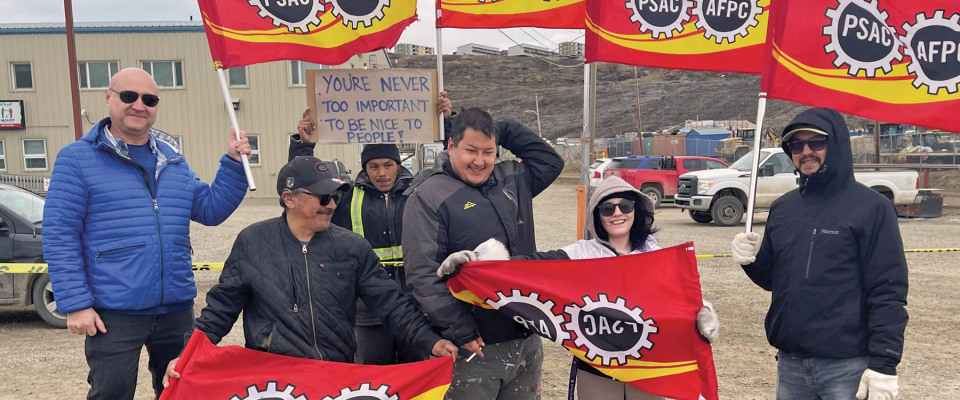If you’ve ever been on a picket line before, you’ll know that it can be extremely difficult to keep your energy high while fighting for your future. Life’s ups and downs don’t wait until you are off the line.
That was certainly the case for the thirteen workers at the Iqaluit Housing Authority (IHA), who spent 137 days on strike during the longest job action in Nunavut’s history. While they were locked out by their employer, they battled the territory’s unforgiving weather and grappled with replacement workers who were being flown in to cross the picket line and do their jobs – dragging out the strike and dividing their community.
Audrey Mélanie had only been in Iqaluit for a few weeks when the strike was called. Formerly a nurse and the only member who had prior experience with job action, she moved to Iqaluit to work as an administration clerk, a job she would soon love.
“Everyone, staff and our managers, got along before the strike. But it was almost like we had to destroy this sense of family to build it again, stronger,” said Mélanie. She admits that despite how hard it was to be on strike, it made her want to get more involved in her union. “We cried so much and we achieved so much. Nothing can compare to the smiles on the day that we got back to work.”
Anti-scab legislation
Tensions were high when replacement workers from the south were brought in – who were better paid and received housing allowances IHA’s own employees never did.
“The encounters in the community were toxic,” said Jason Rochon, president of the Nunavut Employees Union.
Rochon is cautiously optimistic that anti-scab legislation promised by the federal government will be an effective tool to push employers to respect workers and the collective bargaining process.
“Over 90% of the workers who held the line are young and Inuit,” said Rochon. Because they held the line and fought for better, they secured a hard-fought collective agreement that protects them against Nunavut’s high cost of living and secures better working conditions.
“They knew their worth and they were right,” he said. “They knew that they were helping their communities and were there for each other. Because of their example, workers won’t take the first deal that’s offered to them.”
 Member Login
Member Login



